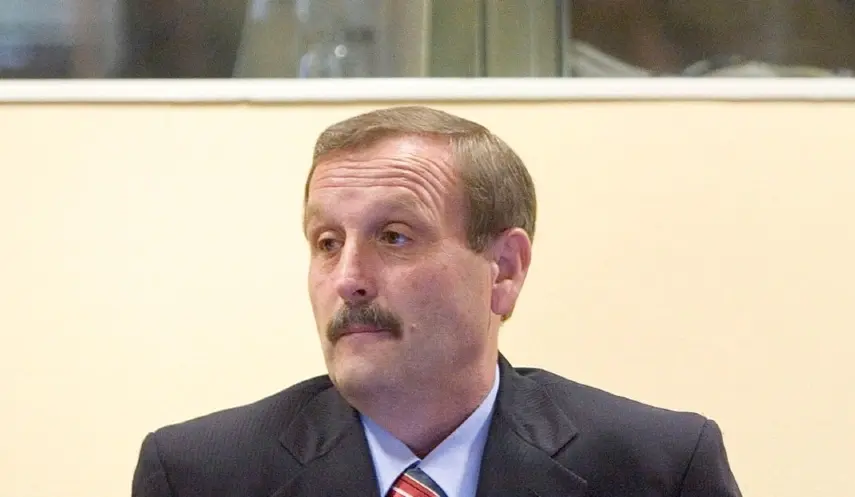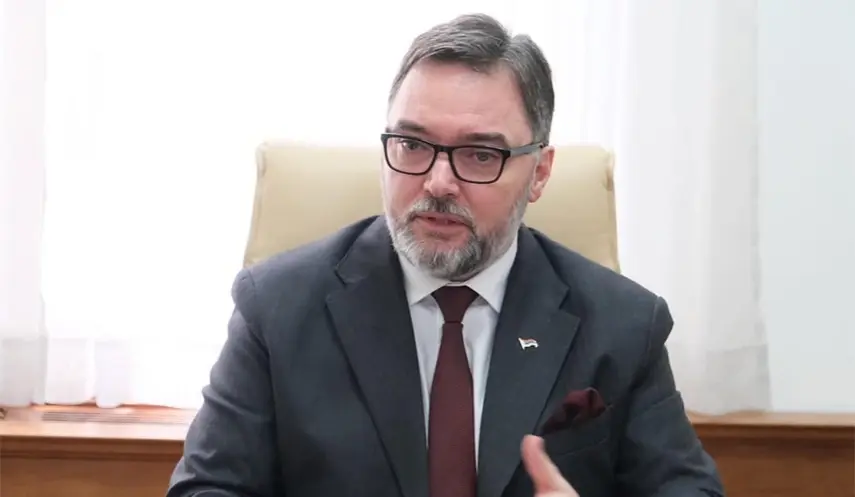MALENICA: SRPSKA REFUSES TO BECOME A DUMPING GROUND FOR SOMEONE ELSE'S PROBLEMS
Republika Srpska - CDPI - migrants
06/28/2025
11:51

BANJA LUKA, JUNE 28 /SRNA/ - Political scientist Ljubiša Malenica from the Center for Socio-Political Research /CDPI/ of Republika Srpska emphasized that the position of Republika Srpska’s institutions on the issue of migrants is the correct one, and it once again confirms that the sense of sovereignty and statehood, within BiH, exists primarily in Srpska.
Malenica stresses that Republika Srpska refuses to become a dumping ground for someone else's problems in exchange for fleeting and vague political promises, especially in the context of progress toward EU membership.
In an op-ed for SRNA titled "A Dumping Ground for Someone Else's Problems," he stated that it is in the interest of the Serbian people to continue investing in pro-natalist policies, strengthening rural households, consistently working to bring back those who have emigrated, and returning to original, indigenous social models.
SOCIO-DEMOGRAPHIC AGONY OF THE WEST
Malenica stated that Western countries are undergoing a socio-demographic agony and that the blame for this situation lies with themselves.
“The residents of Western states were promised a multicultural utopia, integration of foreigners, economic growth and development, and improvement in living standards and quality of life. Constant progress toward betterment was promised. Carried by the arrogance of fortunate historical circumstances of the twentieth century, the West accepted as an objective reality the illusion of the superiority of its own culture and the universality of its particular values. From this arrogance arose the belief that foreigners, carriers of different cultures, behaviors, and traditions, could be assimilated without major difficulties, namely, that they are inherently inferior,” Malenica emphasized.
According to him, the current migrant crisis affecting the European continent, especially its western part, most clearly reflects the present crisis of the West, which is evolving from relatively straightforward issues of migration, economy, and demography into a much more serious crisis of identity of Western countries and the peoples inhabiting them.
"Will the United Kingdom remain what it is today when, according to the latest research, the indigenous population becomes a minority by 2070?" Malenica asked.
He pointed out that the possible plan by British authorities to return fifty thousand migrants, not to their countries of origin but to the Balkans, is both an admission of error and a reflection of realpolitik calculation.
“For decades, the migration policies of Western countries have been a mistake, but shifting migrants to the Balkans is an attempt to turn that very mistake into a tool for the realpolitik needs of London’s imperial foreign policy, namely, to use this human element as a means of hybrid warfare and to destabilize areas primarily inhabited by Serbs,” Malenica stated.
MIGRANTS - A SECURITY ISSUE
Malenica emphasized that migrants represent a security issue, especially in the context of BiH and the radical Islamist structures that exist within it.
“Given that we are talking about tens of thousands of people, it is inevitable that among them there would be willing recruits for terrorist and criminal organizations. At the same time, the migrant issue is not limited to security concerns but extends deeply into matters of demography, culture, identity, population composition, and the cohesion of the national collective as a key precondition for a secure community,” Malenica emphasized.
According to him, the position of Republika Srpska’s institutions on this issue is clear and, more importantly, correct.
“This position once again affirms that the sense of sovereignty and statehood within BiH exists primarily in Republika Srpska, which refuses to become a dumping ground for someone else’s problems in exchange for fleeting and vague political promises and supposed concessions, especially in the context of progress toward European Union membership, the meaning of which is, objectively speaking, increasingly questionable with each passing day,” Malenica stated.
The issue of migrants, he added, is not a matter of day-to-day political narrative but a long-term challenge.
“Through modern means of communication, we are witnessing the devastating outcomes of poor policies by Western states, specifically regarding migration, and their approach to it as both a social and political phenomenon. It is no coincidence that American political scientist Kelly Greenhill, in her study of migration, highlighted the existence of politically motivated migratory movements, which she termed ‘weapons of mass migration,’” Malenica said.
WHAT IS IN THE INTEREST OF THE SERBIAN PEOPLE?
Malenica stated that migration and migrants do not represent a solution to the challenges faced by Balkan countries; on the contrary, Western experience shows they often become sources of further social destabilization.
“It is in the interest of the Serbian people to continue investing in pro-natalist policies, strengthening rural households and communities - not only as agricultural assets, but generally as desirable spaces for living - maintaining continuous efforts to bring back those who have emigrated, and returning Serbs as a nation to those social, cultural, and traditional patterns that are truly indigenous to us and that emerged as an expression of our historical experience and existence,” Malenica says.
Objectively speaking, he noted, there is neither a need nor a reason to transfer someone else’s problems onto the territory of BiH, whether referring to its entities or BiH itself. Otherwise, Republika Srpska has both the right and the obligation to its citizens to continue developing its own capacities for the sake of preserving security and social stability.
“The migrant crisis is shaking Europe, and it will continue to do so. It is the responsibility of those who created the problem to resolve it, and those are certainly not the countries of the Balkans,” Malenica stated in his op-ed, which was also published on the CDPI website: https://cdpirs.org/odlagaliste-tudjih-problema-cdpi-malenica-migranti-rs/.

DODIK DISCUSSES SRPSKA'S STATUS, MISUSE OF JUDICIARY AND SOC PROPERTY SEIZURES WITH CONGRESSMAN OGLES

MILAN MARTIĆ'S REQUEST FOR EARLY RELEASE REJECTED

KOŠARAC: FORTO AND THE REST OF 'TROIKA' MISLEAD PUBLIC WITH ROSY EU NARRATIVES





